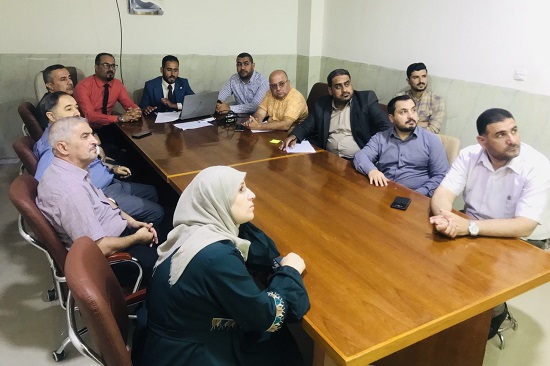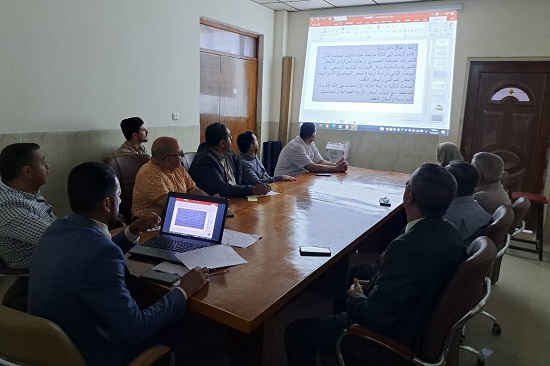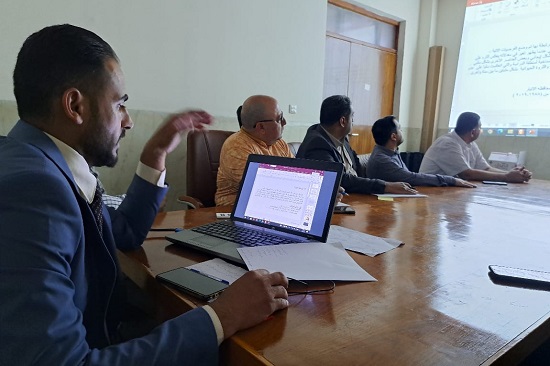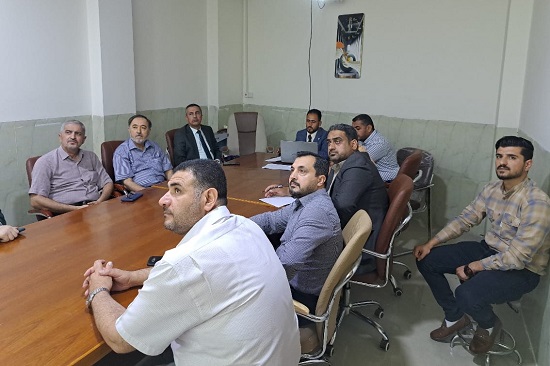| News Details |
Indicators of climate change and its impact on the agricultural economy in Anbar province
2023-11-07

In continuation of the curriculum followed by the Upper Euphrates Basin Developing Centre at the University of Anbar to hold weekly workshops and seminars, the assistant instructor researcher (Mohammad Rahim Mohammad) presented a scientific panel discussion on Tuesday, 7/11/2023, at eleven o'clock in the meeting room at the Centre, which was entitled:
(Indicators of climate change and its impact on the agricultural economy in Anbar Governorate)
The study presented by the researcher focused on analyzing climate change indicators, which included elements (maximum and minimum temperatures, rainfall) and their impact on the agricultural economy in Anbar Governorate, and showing the impact of these changes on the rise and fall in the prices of some agricultural crops and livestock: (cows, sheep, and goats). This study relied on data for six climatic stations and agricultural districts: (Al-Qaim, Anah, Haditha, Hit, Ramadi, and Rutba).
The annual and monthly climate change and fluctuation have had a clear impact on the agricultural economy in Anbar province negatively. Through the occurrence of droughts that greatly affected the fluctuation of strategic crop prices, livestock prices and fodder prices from year to year. The loss in drought years is estimated at millions of dollars, which resulted from a significant decrease in prices in the dry years in (2021 and 2022), against the high prices of wheat and barley crops and the rise in feed prices, which made many breeders sell their livestock because production costs have become high and a loss for the breeder. This was reversed when a wet year occurred in 2023, which raised livestock prices at an unprecedented rate with a decline in livestock preparation.
The researcher explained the need to activate the role of universities and schools to spread awareness about that change and carry out annual afforestation work, and also stressed the need for the government to support livestock breeders by providing their requirements at subsidized prices in order to maintain the stability of livestock prices in order to protect them from unfair slaughter and not to consume them excessively.
#university_of_anbar
#Upper_Euphrates_Basin_Developing_Center









